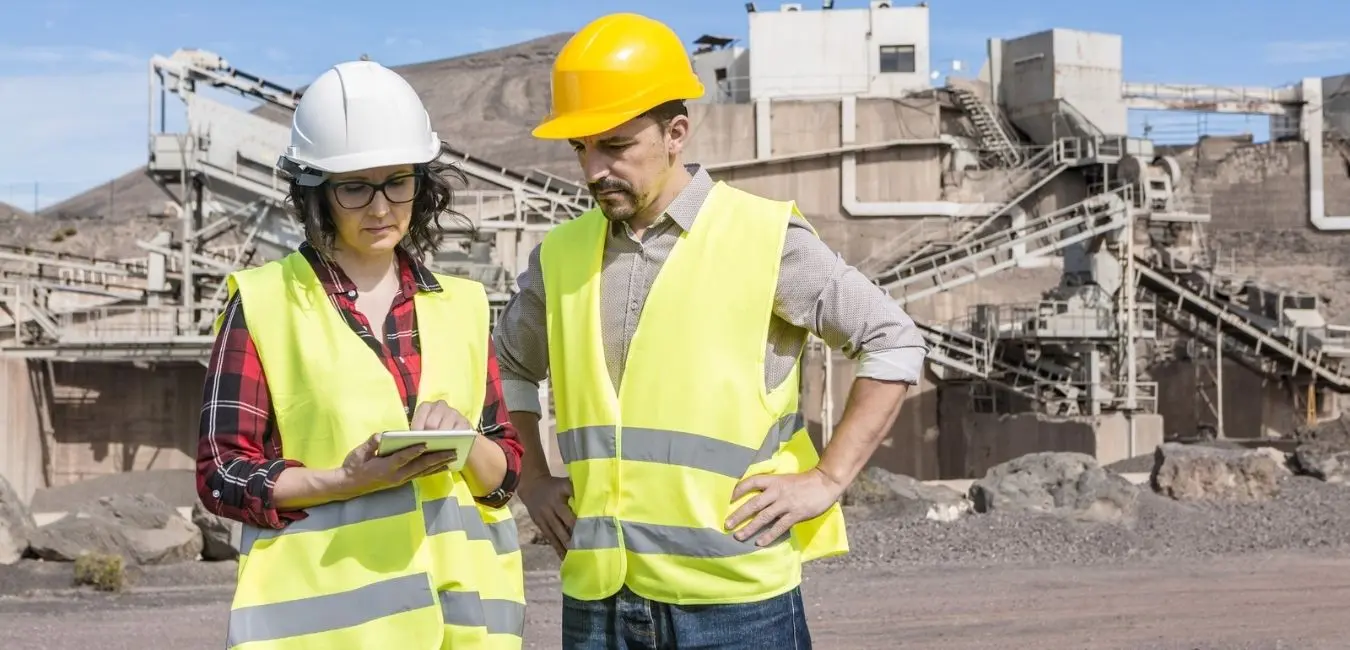The construction industry is evolving, emphasizing transparent communication as a key factor in enhancing operations and improving residential outcomes. By breaking down communication barriers and promoting openness, professionals unlock new possibilities beyond project management.
This article explores how transparent communication can transform construction enterprises and the homes they build, driving success and innovation.
Key Takeaways
- Transparent communication is essential for successful construction projects and fostering trust among stakeholders
- Challenges in communication in construction include the complexity of projects, coordinating multiple stakeholders, and diverse backgrounds leading to misinterpretation
- Implementing transparent communication in construction reduces misunderstandings, promotes accountability, and encourages a culture of openness and honesty
- Strategies such as clear communication lines, digital tools for collaboration, regular meetings, and documenting decisions are crucial for effective transparent communication in builders
Importance of Transparent Communication
Transparent communication in construction is pivotal for ensuring project success and fostering trust among stakeholders. When all parties involved have access to clear and accurate information, misunderstandings and conflicts are minimized, leading to smoother project execution.
One of the key benefits of transparent communication is the ability to address issues promptly. By openly sharing information about timelines, budgets, and potential challenges, project teams can collaborate more effectively to find solutions and mitigate risks before they escalate. This proactive approach not only helps in meeting deadlines but also in maintaining quality standards throughout the construction process.
Moreover, transparent communication fosters accountability among all stakeholders. When everyone is aware of their responsibilities and the overall project goals, they are more likely to take ownership of their tasks and deliver results efficiently. This sense of accountability creates a culture of teamwork and reliability, essential for the successful completion of construction projects.
Ultimately, transparent communication builds a foundation of trust that is essential for long-term relationships and successful outcomes in the construction industry.
Challenges in Construction Communication
Navigating the intricate web of communication channels within the construction industry poses significant challenges that can impact project timelines and outcomes. The construction sector often faces hurdles in communication due to the complex nature of projects involving multiple stakeholders, tight deadlines, and intricate technical requirements. One of the primary challenges is ensuring effective communication among architects, engineers, contractors, subcontractors, and clients. Misunderstandings or lack of clarity in communication can lead to errors, rework, delays, and cost overruns.
Moreover, the fast-paced environment of construction projects demands quick decision-making and problem-solving, which further amplifies the need for clear and transparent communication. Coordinating schedules, managing change orders, and addressing unforeseen issues require seamless information flow among all parties involved. Additionally, the diverse backgrounds and expertise of individuals in the construction industry can sometimes lead to misinterpretation of technical jargon or specifications, hindering effective communication.
To overcome these challenges, implementing structured communication protocols, utilizing digital tools for real-time updates, and fostering a culture of transparency and collaboration are essential for successful project delivery.

Benefits of Transparent Communication
Effective communication in construction projects is paramount for ensuring successful outcomes and maintaining project efficiency. Transparent communication plays a crucial role in fostering trust and collaboration among all stakeholders involved in a construction project.
One of the key benefits of transparent communication is that it helps in reducing misunderstandings and conflicts. By openly sharing information, project teams can ensure that everyone is on the same page regarding project goals, timelines, and expectations. This clarity can prevent costly errors and delays, ultimately leading to a smoother project delivery process.
Additionally, transparent communication promotes accountability among team members. When everyone is aware of their roles and responsibilities, it becomes easier to track progress and address any issues that may arise promptly. This level of transparency also encourages a culture of openness and honesty, where team members feel comfortable expressing their ideas, concerns, and feedback.
As a result, decision-making becomes more informed, leading to better outcomes for the project as a whole. In conclusion, embracing transparent communication in construction projects brings about improved collaboration, efficiency, and overall project success.
Implementing Transparent Communication Strategies
Implementing robust communication strategies that prioritize transparency is essential for the successful execution of construction projects. By establishing clear lines of communication from the onset, project stakeholders can ensure alignment on goals, timelines, and expectations. One key strategy is to leverage digital tools that allow for real-time updates and collaboration, fostering a culture of openness and accountability among team members. Regular project meetings and progress reports also play a vital role in keeping all parties informed and engaged throughout the construction process.
Moreover, implementing transparent communication strategies involves setting up channels for feedback and addressing issues promptly to prevent misunderstandings or delays. Encouraging an environment where questions are welcomed and addressed constructively can lead to improved problem-solving and innovation on the job site. Additionally, documenting important decisions and changes ensures that everyone involved is on the same page and reduces the likelihood of disputes arising.
Tools for Enhancing Communication
Wondering which tools can best enhance communication within construction projects for streamlined collaboration and efficiency? In the construction industry, utilizing the right communication tools can make a significant difference in project outcomes. One essential tool is project management software, which allows for real-time updates, task assignments, and progress tracking. Platforms like Procore, PlanGrid, or BIM 360 facilitate seamless communication among team members, subcontractors, and clients, ensuring everyone is on the same page throughout the project lifecycle.
Another valuable tool for enhancing communication in construction is Building Information Modeling (BIM) software. BIM enables stakeholders to visualize the entire project in a digital environment, promoting better coordination and decision-making. It also allows for the integration of various project elements, such as design, scheduling, and cost estimation, fostering a more collaborative approach among team members.
Furthermore, mobile communication apps like Slack, Microsoft Teams, or WhatsApp can enhance real-time communication, enabling quick exchanges of information, updates, and feedback. These tools promote agility and responsiveness within construction teams, leading to improved efficiency and project success. By leveraging these communication tools effectively, construction projects can achieve enhanced transparency, productivity, and ultimately, success.
Case Studies: Successful Communication in Construction
In the realm of construction projects, exemplar communication practices have played a pivotal role in driving successful outcomes and fostering collaborative environments. Let’s delve into some case studies that highlight the importance of successful communication in construction.
Case Study 1: The renovation of a historic building in downtown cityscape. The project involved multiple stakeholders, including architects, engineers, and contractors. By establishing clear channels of communication through regular meetings and digital platforms, the project team ensured that everyone was aligned with the project goals. This transparency led to efficient problem-solving and timely decision-making, resulting in the successful completion of the renovation within the scheduled timeframe and budget.
Case Study 2: A residential construction project where transparent communication between the homeowner and the construction team was paramount. Regular updates on the progress of the project, detailed discussions about design choices, and open dialogue about any challenges that arose ensured that the homeowner’s vision was realized. This level of communication not only met but exceeded the homeowner’s expectations, leading to a satisfied client and a successful project outcome.
Frequently Asked Questions
How Does Transparent Communication in Construction Impact Project Timelines and Deadlines?
Transparent communication in construction greatly impacts project timelines and deadlines by fostering trust, collaboration, and accountability among team members. Clear communication mitigates misunderstandings, reduces delays, and ensures everyone is aligned on project goals, ultimately leading to timely project completion.
What Are Some Common Misconceptions About Transparent Communication in the Construction Industry?
Common misconceptions about transparent communication in the construction industry include fears of information overload, lack of confidentiality, and potential conflicts. In reality, transparent communication fosters trust, enhances collaboration, and improves project outcomes.
How Can Transparent Communication Help Improve Relationships Between Different Stakeholders on a Construction Project?
Transparent communication fosters trust and collaboration among diverse stakeholders in construction projects. It ensures all parties have access to accurate information, enabling better decision-making, timely problem-solving, and ultimately, stronger relationships that enhance project success and client satisfaction.
Are There Specific Strategies That Can Be Implemented to Ensure Transparent Communication Remains Effective Throughout a Construction Project?
To ensure effective transparent communication throughout a construction project, implementing strategies like regular progress updates, clear documentation, open forums for discussion, and utilizing technology for real-time information sharing are key. These practices foster trust and collaboration among stakeholders.
How Does Transparent Communication in Construction Contribute to Overall Project Success and Client Satisfaction?
Transparent communication in construction significantly boosts project success and client satisfaction. It fosters trust, minimizes misunderstandings, and enables timely issue resolution. Open dialogue ensures all stakeholders are informed, promoting collaboration and alignment towards shared project goals.
Conclusion
In conclusion, transparent communication in construction plays a critical role in fostering collaboration, minimizing conflicts, and enhancing project efficiency. By implementing strategies that prioritize open dialogue and honesty, stakeholders can build trust among team members and clients, ultimately leading to successful outcomes in both business operations and residential projects. Embracing transparent communication is essential for reshaping the construction landscape and achieving unparalleled success in the industry.
You may also like to read:
Can You Start Your Own Business as an Interior Designer?


